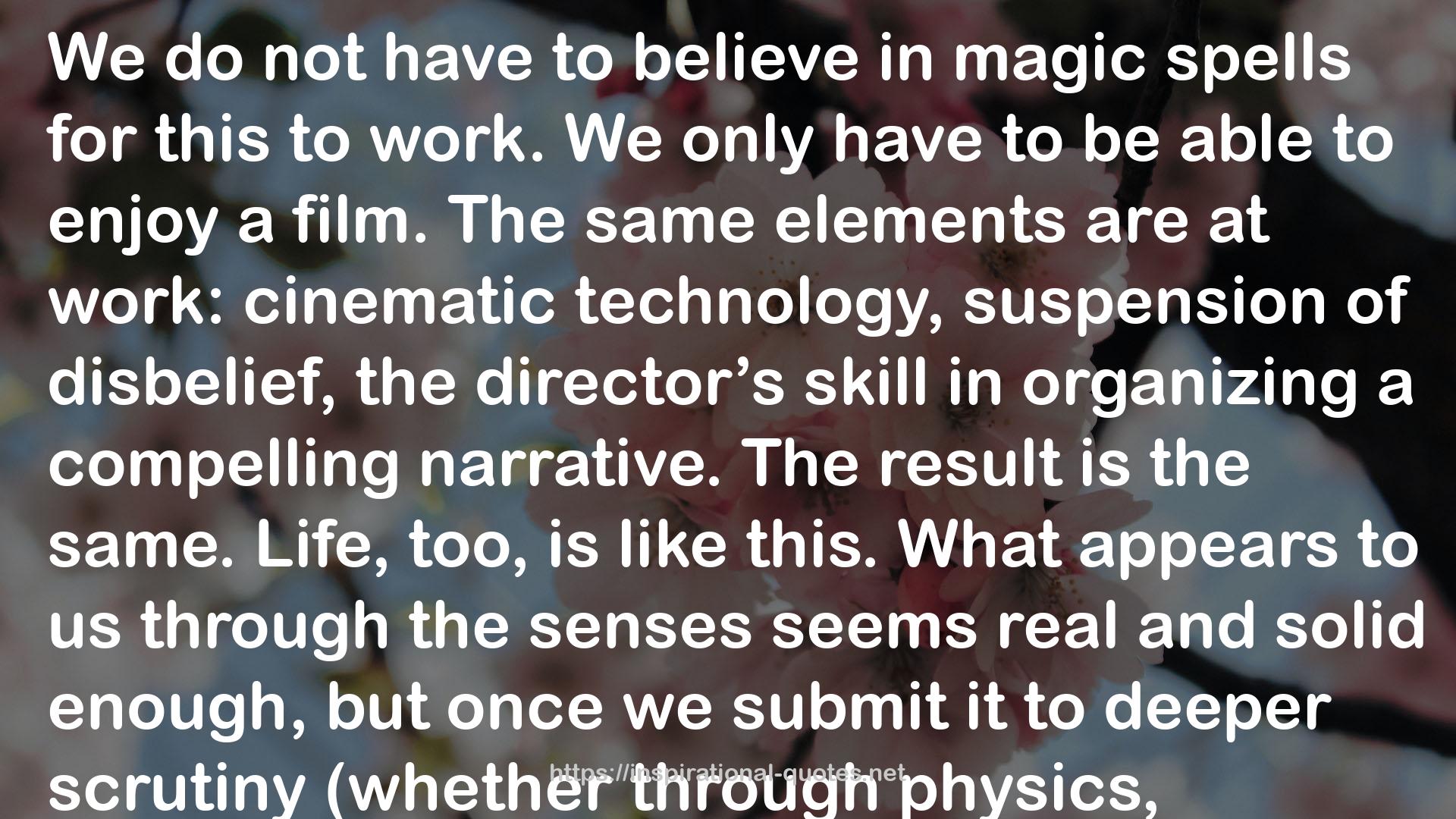" We do not have to believe in magic spells for this to work. We only have to be able to enjoy a film. The same elements are at work: cinematic technology, suspension of disbelief, the director’s skill in organizing a compelling narrative. The result is the same. Life, too, is like this. What appears to us through the senses seems real and solid enough, but once we submit it to deeper scrutiny (whether through physics, postmodern philosophy, or Buddhist meditation), that out-thereness-in-its-own-right of the thing starts to dissolve. Once we notice its utter contingency, the gut feeling that there must be something solid and unchanging at its core weakens. The thing is seen not only to emerge from a complex set of causes and conditions but also to depend on a vast number of parts, attributes, and components. If we look closer still, we find that it is what it is because of the way we talk and think about it, because of the peculiar way in which our culture perceptually organizes it so that it makes sense. Nothing else, no extra metaphysical essence, is necessary. While language forces us to use the word “it,” ultimately there is nothing to which it refers. Life "
― Stephen Batchelor , Secular Buddhism: Imagining the Dharma in an Uncertain World
